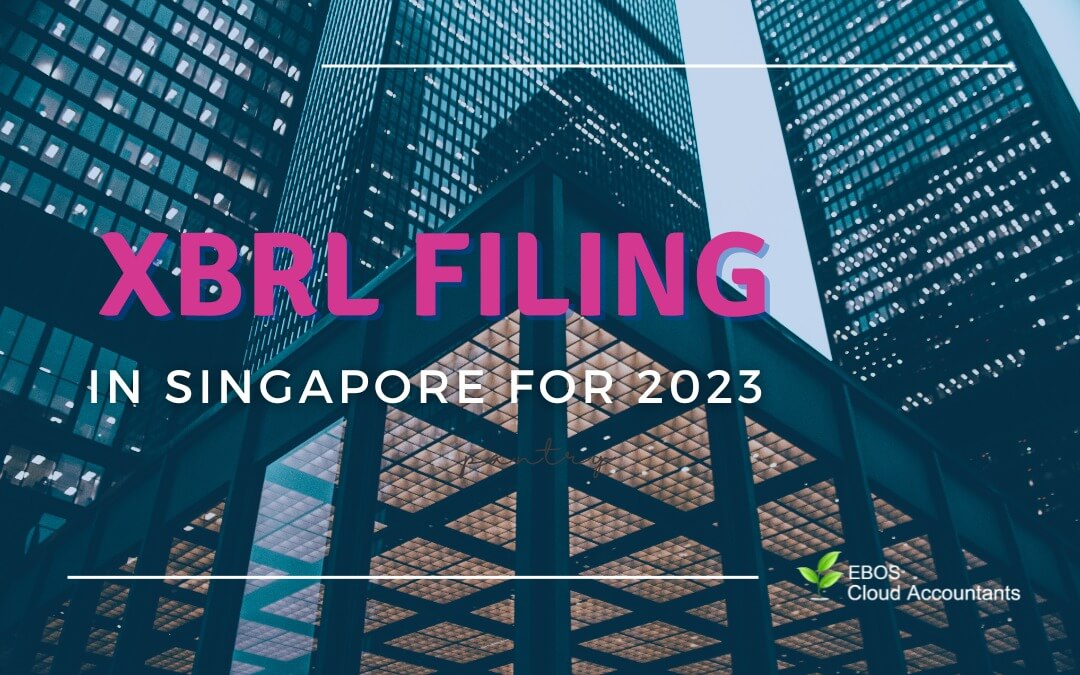Companies must comply with financial report filing regulations and submit their financial statements in XBRL format starting in 2014. The types of companies, their sizes, and their lines of operation all have different filing requirements for XBRL. In this article, we discuss the prerequisites and process for submitting financial statements of Singaporean companies in XBRL format.
What Is XBRL Filing?
The extensible markup language-based format known as eXtensible Business Reporting Language, or XBRL, is used to submit financial statements by IFRS. This format is utilized all over the world because it enables the processing of enormous volumes of quantitative data and facilitates the creation of a widely acknowledged standard format for financial reporting.
Benefits of Filing in XBRL Format
Financial statement preparation for Singaporean businesses is made simpler by XBRL, which also enables speedy processing and analysis of this data by authorities. The XBRL reporting standard-based system offers various benefits, including the following:
- The capacity to generate reports automatically;
- Faster, more precisely, and more dependable data handling;
- Improved business information analysis;
- The capacity to gather and examine accounting data for huge data collection;
- Regulations that are more effective and affordable, etc.
Who Needs to File Financial Statements in XBRL Format?
Unless they are specifically exempt, all Singapore-incorporated businesses must submit financial statements to the Accounting and Corporate Regulatory Authority of Singapore (ACRA) as part of their yearly filing requirements. Both public and private businesses provide their complete financial statements in XBRL format. A full set of signed PDF copies of the financial statements are distributed to members and/or provided at annual general meetings for firms limited by guarantee, foreign corporations, and their branches to file critical financial data in XBRL format. However, partnerships and sole proprietorships are exempt from any requirement to file financial statements with ACRA.
Who Is Exempted from XBRL Filing Requirements?
In Singapore, the following entity kinds are exempt from filing XBRL documents:
- Commercial and merchant banks;
- Finance firms that the Monetary Authority of Singapore (MAS) oversees;
- Authorized insurers;
- Private businesses that are solvent-exempt (solvent EPCs);
- Businesses that don’t follow IFRS, SFRS for Small Entities, or Singapore Financial Reporting Standards (SFRS).
XBRL Filing Requirements and Standards in Singapore
XBRL is an open-source, cost-free file format. Currently, ACRA offers rules for how line items in financial statements relate to certain XBRL taxonomy elements and for how XBRL financial statements are evaluated.
Types of XBRL Filing Formats
There are four types of XBRL filing formats, which differ depending on the size of the company and its activities:
- Full XBRL
- Simplified XBRL
- XBRL FSH for banks
- XBRL FSH for insurers
What Information Must Be in Financial Statements Filed in XBRL Format?
To comply with XBRL filing requirements, companies must provide the necessary data in XBRL format, including:
- Auditors’ reports and selected data in the directors’ statement;
- Statement of financial position, income statement and statement of cash flow;
- Notes on revenue, provisions, share capital, related parties, employee benefits, etc.
Steps to File Financial Statements in XBRL in Singapore
Companies must carry out the following six processes in Singapore to submit financial statements in XBRL format:
Step 1: On the ACRA website, you can free download the BizFinx preparation software.
Step 2: Bring up the company’s financial accounts, as presented at the annual general meeting, as “a source document” in either Microsoft Word or Microsoft Excel formats.
Step 3: Fill up the template with all pertinent financial information and XBRL tags. Simply leave the data section empty if the requested material is not discussed at the annual general meeting.
Step 4: Check for mistakes, if any, and fix them. Then offline-verify your XBRL financial statements.
Step 5: Upload and verify XBRL financial statements directly from BizFinx. They will be valid for up to 14 days. Simply press the “Acknowledge and Upload” button for uploading financial statements. Upon successful upload, you will see a message, “Your XBRL file has been successfully uploaded,” as described in the guidelines. Note that if the XBRL financial statements are uploaded incorrectly, you will be able to delete them and upload the correct ones. For detailed instructions, please refer to this website.
Step 6: Log in to BizFile and submit the annual return with uploaded XBRL financial statements.
When Is the XBRL Filing Deadline?
After the fiscal year finishes, businesses in Singapore are required to prepare their financial statements in XBRL. For listed firms, the XBRL filing deadline is five months after the fiscal year ends; for non-listed organizations, it is seven months. If a business submits its XBRL financial statements late or with an outdated presentation, ACRA may levy fines.
How Can We Help?
By using the services of a reputable corporate services provider, financial reporting problems can be avoided with the least effort. EBOS Cloud Accountants assists you with filing financial statements in XBRL format with our EBOS Corporate Secretarial App. Our service packages include XBRL filing with ACRA. We assure you of our dependability and quality.
Get in touch with our success team today!







